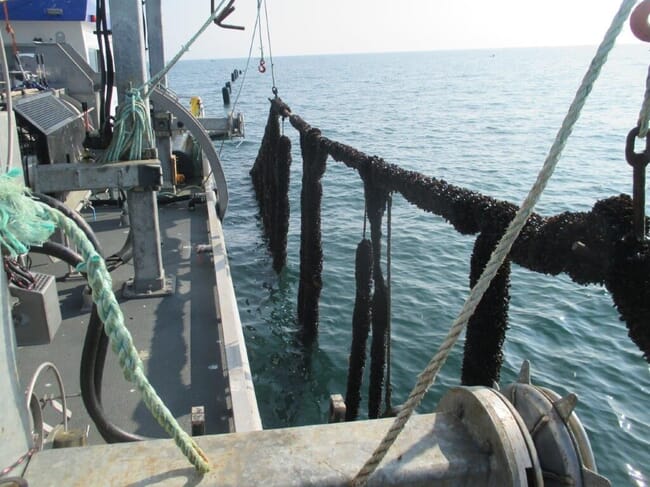These include climate change, a dependence on wild fish stocks for feed, excessive use of antibiotics and poor governance. The report also highlights the rising investment opportunities in areas such as fish health innovations and alternative feeds.

The report, ‘Shallow returns?’, is produced by FAIRR, a network backed by investors managing over $12 trillion of assets, including Aviva Investors, CANDRIAM, DNB Asset Management and Norwegian pension group KLP.
Despite the average annual growth of the aquaculture sector nearing 6 percent, the report warns that much of the growth is based on more intensive, high-density farming that is associated with the following ESG risks.
- Climate change: the report says that the aquaculture sector "is both a significant contributor to climate change and is highly exposed to its impacts". It predicts that marine fish production in Southeast Asia, will drop up to 30 percent by 2050 due to rising sea temperatures and ocean acidification.
- Algal blooms: the report points out that Norway is currently suffering from its worst algal bloom in 30 years, which has killed an estimated 8 million salmon so far, while in 2016, harmful algae caused an estimated $800 million in damage to the Chilean salmon industry when they killed nearly 27 million fish – around 20 percent of the country’s salmon production that year.
- Antibiotics: in some regions, according to the report, "aquaculture companies rely on excessive use of antibiotics to maintain production, leaving the sector highly exposed to global efforts to fight antibiotic resistance".
- Fish feed supply: the report argues that the salmon and shrimp sectors are "highly dependent on rapidly-depleting wild fish stocks for future growth". Attempts to double aquaculture production by 2050 to meet global demand, "will put considerable pressure on global fish stocks".
- Governance: the report argues that last month's lawsuit accusing major players in Norway’s farmed salmon industry of price fixing, "is symptomatic of a wider lack of transparency in the sector".
Other risks highlighted by the report include the level of effluents and waste flowing from aquaculture production systems to the wider environment; the millions of fish escaping fish farms and mixing with native marine populations; and the intensifying battle against fish diseases such as sea lice. According to the World Bank, diseases alone cost the sector $6 billion per annum.
Maria Lettini, Director of FAIRR, said: “Investors should be aware of the sustainability risks in the aquaculture sector before they wade in too deeply. From effluents to emissions, this sector must address significant environmental and public health challenges if it is to prosper over the long-term. There are clear steps which must be taken to manage these risks. For example, aquaculture operations should be certified against global standards that meet FAO guidelines. The market should also consider greater cultivation of species that remove marine pollution rather than contribute to it - such as mussels and oysters. In addition, farming these species brings minimal animal welfare concerns and does not require fishmeal-based feed.
“Investors have been watching the aquaculture sector with growing interest and are closely following the development of many potentially game-changing innovations such as advanced production systems and alternative feed ingredients. These innovations could disrupt the aquaculture sector if they succeed in addressing the sector’s critical sustainability challenges.”
“It’s fitting that this report launches on World Environment Day as few investors realise either the contribution of aquaculture to climate change, nor the threats the sector faces due to climate impacts such as rising sea temperatures."

